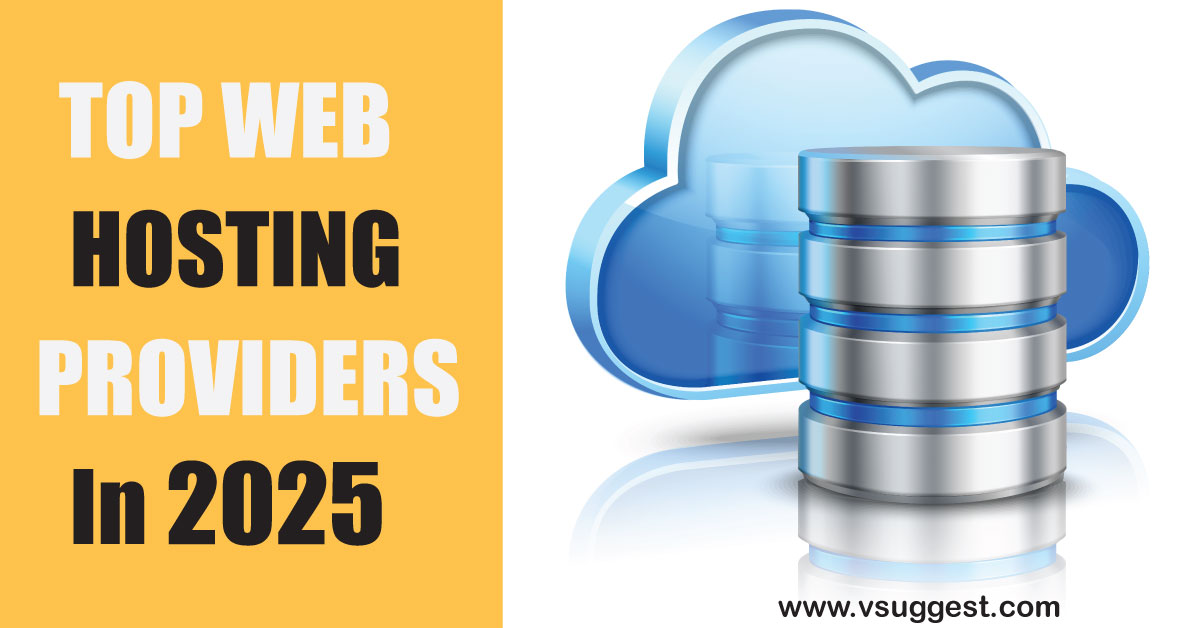Best Hosting refers to the service of storing and making websites, applications, or other online content accessible on the internet. The best hosting provider offers servers and infrastructure that keep websites running and available to users. In today’s digital age, hosting is important in keeping websites, applications, and online services accessible to users worldwide. Whether you’re launching a personal blog, an e-commerce store, or a business website, choosing the right hosting service is essential for performance, security, and reliability.
How To Choose the Best Hosting Provider?
When choosing a host, take into consideration factors like speed and uptime, security features, as well as customer support, and prices. The most well-known hosting companies include:
The right hosting service is vital to ensure an online presence that is strong. If you’re running a personal blog or a popular commercial website, picking an experienced hosting service will ensure maximum performance, security, and the ability to scale.
Types of hosting services
Shared hosting- Ideal for beginners and small sites, multiple websites can share one server’s resources.
VPS hosting- VPS hosting gives more control and resources when compared to the shared host.
Dedicated hosting offers a complete server that is dedicated to a specific website, ensuring maximum efficiency and protection.
Cloud Hosting- Utilizes different servers to host sites, which ensures the ability to scale and maintain uptime.
Managed hosting- Hosting providers take care of technical aspects such as updates, security, and backups.
Reseller Hosting- Allows companies to market hosting services under their brand.
Key Features of the Best Hosting Provider
Selecting the best hosting service is important to ensure the smooth operation of your website. Here are the essential characteristics to consider:
- Uptime Guarantee- A high uptime percentage (99.9 percent or higher) assures that your site remains accessible and online.
- Speed and performance- Fast servers, SSD storage, and the Content Delivery Network (CDN) Integration enhance website load times.
- Security features- Firewalls, SSL certificates security against malware, and regular backups provide the security of your website.
- Customer support- Support for customers 24/7 through live chats, emails, or by phone, helping to resolve issues fast.
- Scalability- The ability to improve the quality of your site grows.
- Easy of Use- An easy-to-use control panel (e.g. cPanel, cPanel, or Plesk) makes managing websites easier.
How to Choose the Best Hosting Plan
When choosing a hosting plan, be aware of the following elements:
- Find Your Website’s Needs – Choose the type of website you’re creating (blog or an e-commerce website and so on. ).
- Budget considerations – Select a hosting plan that is within your budget and offers important features.
- Traffic Expectations – Choose a hosting plan that will manage your expected website traffic.
- Technical Knowledge – Beginners may opt for managed hosting, whereas those with a high level of technical expertise might prefer dedicated hosting or VPS.
- Scalability Options – Ensure that your hosting service provider permits a simple upgrade to higher plans.
- User Reviews – Read customer reviews and testimonials to assess the reputation of the hosting company and its reliability.
Top Web Hosting Providers in 2025
Here are some of the most popular hosting providers known for their reliability, performance, and customer support
1. Bluehost;

When it comes to reliable and affordable web hosting, Bluehost is one of the most popular choices for bloggers, businesses, and developers alike. Established in 2003, Bluehost has gained a strong reputation for providing high-quality hosting services with a range of features to suit different needs.
Bluehost is an excellent choice for anyone looking for a reliable, budget-friendly hosting provider with strong performance and security. Whether you are starting a blog, an online store, or a business website, Bluehost offers versatile solutions to meet your hosting needs. While there are some minor drawbacks, such as higher renewal rates, the overall value and service make it a top recommendation in the web hosting industry.
2. SiteGround;

If you’re searching for a reliable web hosting service SiteGround is among the top options available. The company is known for its incredible speed as well as security and support for customers, SiteGround offers a range of hosting options that can meet the requirements of small business owners, individuals, and large companies.
SiteGround is a top hosting service that offers speed along with security, reliability, and speed. If you’re just starting or a veteran webmaster, the hosting solutions they offer are designed to give you the most efficient quality of service for users and provide the best user experience.
Are you ready to begin? Sign up with SiteGround today and experience an easy and hassle-free hosting experience!
3. Hostinger;

Looking for a reliable, affordable web hosting service? Hostinger is an ideal option for businesses, individuals, and developers looking for top-quality hosting at a reasonable cost. With cutting-edge technology, solid security, and user-friendly features Hostinger simplifies website hosting and is effective.
Hostinger is a standout as a cost-effective hosting service without sacrificing speed security or reliability. No matter if you’re starting your private blog an online store or a corporate website, Hostinger offers hosting solutions that meet your needs with competitive costs.
Start using Hostinger today and experience top-quality hosting for an unbeatable price!
4. HostGator;

HostGator is among the most reputable web hosting providers that offer the best of affordability, efficiency, and versatility. If you’re a novice, a small-scale business, or an enterprise, HostGator provides hosting solutions that are tailored to your requirements to ensure a smooth, easy experience.
5. Dreamhost;

DreamHost is a highly-rated web hosting company that is renowned for its exceptional performance and security features, as well as user-friendly features. If you’re planning to launch your blog, a small-scale site for business, or the creation of an eCommerce online store DreamHost provides hosting services that meet the needs of all with high uptime as well as fast loading speeds.
- Ideal for developers
- Scalable cloud hosting solutions
- Customizable virtual machines
6. IONOS;

IONOS provides a variety of choices for hosting, ranging from shared hosting and WordPress-optimized hosting as well as dedicated VPNs and servers. Pricing for the first year is also extremely affordable, with pricing for business beginning at just $1 a month in the initial year. It’s a powerful website builder with great pricing.
- Speed-optimized servers
- Excellent uptime
- Free site migration
Best Affordable Web Hosting in 2025
Hostinger– Starting at $2.78 per month, Hostinger offers user-friendly features, AI tools, fast performance, and expert support, making it ideal for beginners.
Bluehost– Officially recommended by WordPress.org, Bluehost provides plans beginning at $2.75 per month, including a free domain, SSL certificate, and CDN, with a focus on WordPress sites.
IONOS- Providing plans from $1 per month, IONOS offers dependable uptime, cloud hosting options, and both Linux and Windows servers, catering to various hosting needs.
DreamHost- With plans starting at $2.59 per month, DreamHost offers unlimited shared data and storage, along with strong security features suitable for growing websites.
Best Web Hosting for E-commerce
Selecting the right web hosting provider is crucial for the success of your e-commerce website. A reliable host ensures fast load times, robust security, and
scalability to accommodate growth. Here are some top-rated e-commerce hosting providers for 2025:

IONOS; offers specialized e-commerce hosting solutions with a focus on speed and
performance. Their plans include WooCommerce integration, unlimited email, and
robust security features, making it a solid choice for online stores.
Bluehost; is known for its user-friendly interface and reliable uptime. They offer
e-commerce hosting plans that include free SSL certificates, one-click installations, and 24/7 customer support, catering well to small to medium-sized businesses
Hostinger; stands out for its globally distributed data centers
and budget-friendly plans. Their e-commerce hosting solutions are tailored for
performance and reliability, making them a top choice for cost-conscious
businesses.
Latest Trends in Web Hosting for 2025
Web hosting has evolved significantly over the years, and 2025 is no exception. With advancements in technology, security, and user experience, the hosting industry is adopting new trends to meet growing demands. Below are some of the key trends shaping the web hosting industry in 2025.
1. AI-Powered Hosting Solutions
Artificial Intelligence (AI) is playing a important role in optimizing web hosting services. AI-driven hosting platforms now offer automated website maintenance, enhanced security, and predictive analytics. These systems can detect and fix issues before they escalate, improving website performance and reducing downtime.
2. Green Hosting and Sustainability
With environmental concerns rising, many hosting providers are adopting eco-friendly practices. Green hosting solutions use renewable energy sources, carbon offset programs, and energy-efficient servers to minimize their environmental impact. Companies like Google and AWS have committed to using 100% renewable energy, setting a standard for others in the industry.
3. Edge Computing for Faster Performance
Edge computing is revolutionizing web hosting by reducing latency and improving load times. Instead of relying solely on centralized data centers, edge computing distributes content closer to the end-user. This is particularly beneficial for applications that require real-time processing, such as gaming, streaming, and IoT services.
4. Enhanced Security with Zero Trust Architecture
Cyber threats are increasing, and web hosting providers are implementing Zero Trust Architecture (ZTA) to enhance security. Unlike traditional security models, ZTA assumes that every request is a potential threat and requires continuous verification. Features such as multi-factor authentication, encryption, and AI-based threat detection are becoming standard.
5. Managed WordPress Hosting Growth
As WordPress remains the dominant content management system (CMS), managed WordPress hosting is gaining popularity. These services offer automated updates, performance optimization, and security enhancements specifically tailored for WordPress users. With more businesses relying on WordPress, managed hosting providers are focusing on improving scalability and user experience.
6. Serverless Hosting for Cost Efficiency
Serverless hosting allows users to run websites and applications without managing physical servers. It operates on a pay-as-you-go model, meaning businesses only pay for the resources they use. This is ideal for startups and small businesses looking for cost-effective solutions without compromising performance.
7. Blockchain-Based Hosting for Decentralization
Blockchain technology is making its way into web hosting, offering decentralized solutions that enhance security and reduce downtime. Blockchain hosting eliminates the need for a single point of failure, making websites more resilient against cyberattacks. Companies are exploring blockchain-powered domain name systems (DNS) for improved transparency and security.
How to Migrate Your Website to a New Host
Migrating your website to a new host may seem like a daunting task, but with a structured approach, you can ensure a smooth transition with minimal downtime. Below is a step-by-step guide to help you migrate your website seamlessly.
1. Choose a New Hosting Provider
Before starting the migration process, research and select a reliable hosting provider that meets your website’s needs. Consider factors such as uptime, performance, support, pricing, and scalability. Once you’ve chosen the new host, sign up for a suitable hosting plan.
2. Backup Your Website Files
The next step is to create a complete backup of your website files. You can use an FTP client like FileZilla to download all the files from your current hosting server. If your website runs on a CMS like WordPress, consider using a backup plugin such as UpdraftPlus or Duplicator to make the process easier.
3. Export Your Database
If your website uses a database, such as MySQL, you need to export it. You can do this through phpMyAdmin by selecting your database and choosing the “Export” option. Save the SQL file to your local computer.
4. Upload Files to the New Host
Connect to your new hosting account via FTP and upload your website files to the appropriate directory (typically the public_html folder). If you used a backup plugin, follow its instructions to restore the files on the new server.
5. Create a New Database and Import Data
In your new hosting control panel, create a new database, user, and password. Then, use phpMyAdmin to import the SQL file you exported earlier. Make sure to update any database connection settings in your website’s configuration files (e.g., wp-config.php for WordPress sites) to reflect the new database credentials.
6. Update Domain Name Settings
To make your website live on the new host, you need to update your domain’s DNS (Domain Name System) settings. Log in to your domain registrar (e.g., GoDaddy, Namecheap) and update the nameservers to point to your new hosting provider. DNS changes may take 24–48 hours to propagate.
7. Test Your Website
Before finalizing the migration, test your website thoroughly on the new host. Use a temporary URL provided by your hosting provider or modify your local computer’s host file to preview the site. Check for broken links, missing files, and database connection errors.
8. Monitor Downtime and Performance
Use tools like UptimeRobot or Pingdom to monitor your website’s uptime and performance after migration. If you encounter any issues, reach out to your new host’s support team for assistance.
9. Cancel Your Old Hosting Plan
Once you’ve confirmed that everything is working correctly on the new host, you can safely cancel your old hosting plan to avoid unnecessary charges.
Conclusion
Migrating your website to a new host requires careful planning, but by following these steps, you can ensure a seamless transition. Always back up your data, verify the migration, and monitor performance to keep your site running smoothly. With a well-executed migration, your website can benefit from improved performance, reliability, and scalability.
